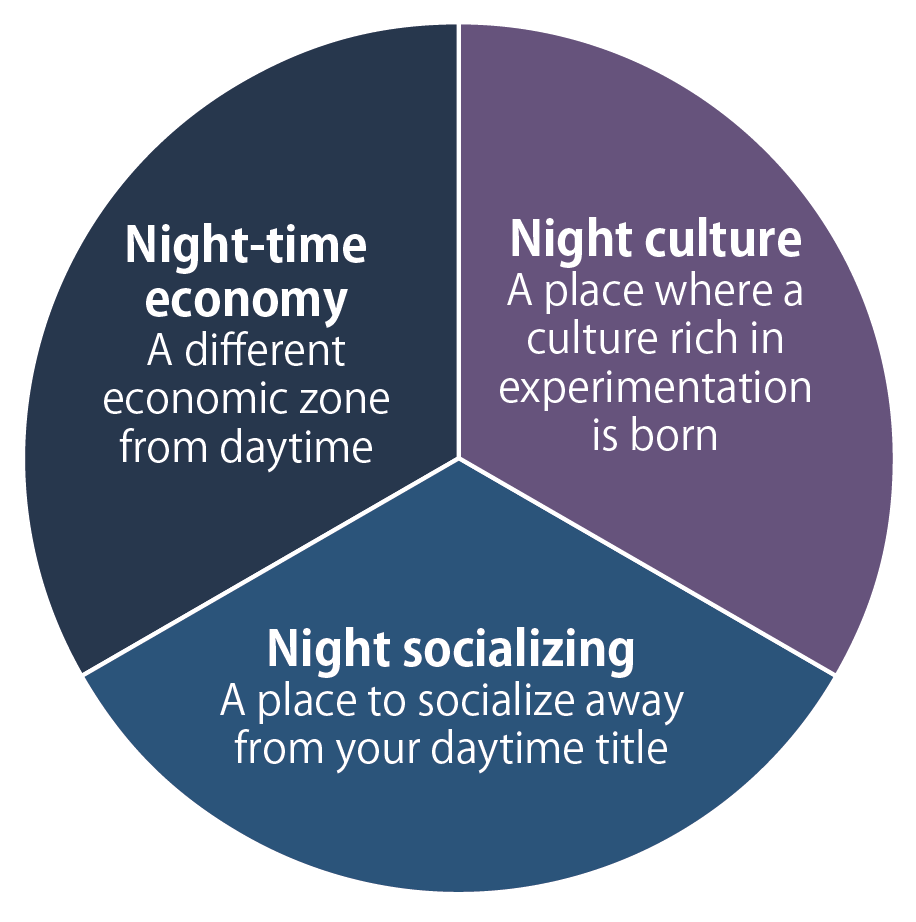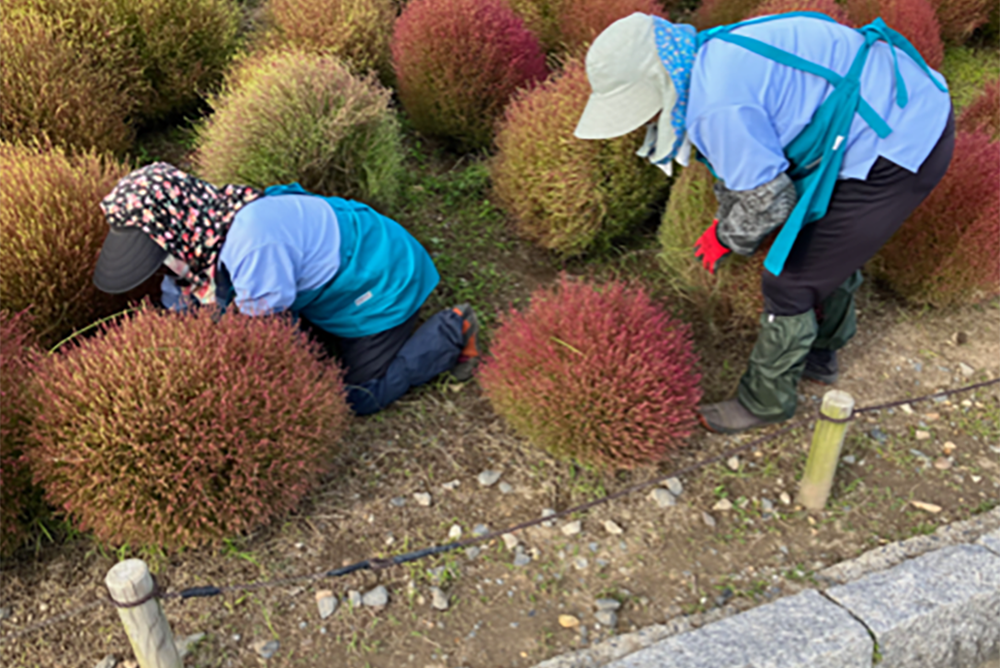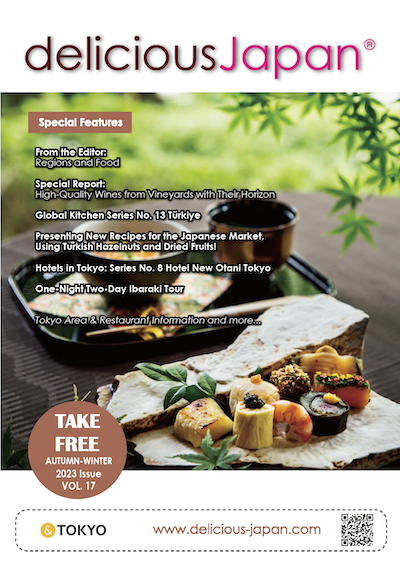
Where is Japan's night-time economy heading?
The Covid-19 pandemic that shook the entire world in 2020 brought the night-time economy to a complete halt. However, the various values and human desires inherent in the night have not been diminished or compromised at all; in fact, it can even be said that they are being sought more strongly.
The three values of "night" as pointed out by Mirik Milan, former night mayor of Amsterdam, are well known. Nocturnal economic activity is known as the "night-time economy". There is the opportunity for a new experimental culture called "night culture" to be born. And then there is "night socializing," a unique nighttime community where people forget their daytime titles as they mingle. These three values interact and synchronize.

From goods consumption to service consumption, from metropolitan areas to rural areas
The total amount of payments per credit card for all visitors to Japan in December 2022 increased 30% from three years ago. The figure in Thailand has doubled, and in Singapore it has grown by 70%. Spending on leisure and other consumption of services is expanding, especially among the wealthy. In addition, the data clearly shows a change in inbound demand, which had been centered in metropolitan areas such as Tokyo and Osaka. Analysis of data such as card payment and mobile phone location data shows that hot springs, golf courses, local food, and local events are popular, and the growth of local consumption is clear.
The crisis situation of the Covid-19 pandemic became an opportunity to further advance entertainment, tourism, etc. The evolution of virtual content has expanded the frontiers of night entertainment. Many people can enjoy night content free from time and location constraints. There are high expectations that new content will be created beyond the fusion of digital and real, that night-time itself will undergo a major shift, and a culture will emerge beyond that. I can't help but feel that Covid-19 will be an opportunity for entertainment enjoyment to evolve in a different direction than before, opening up new possibilities for how to spend an evening.





